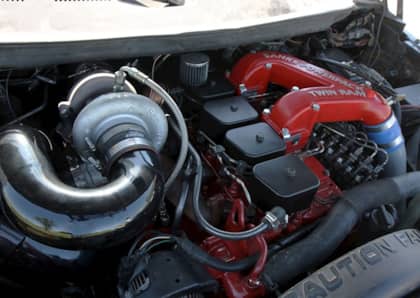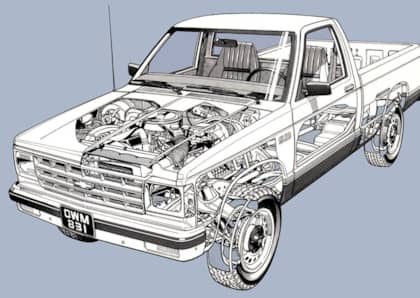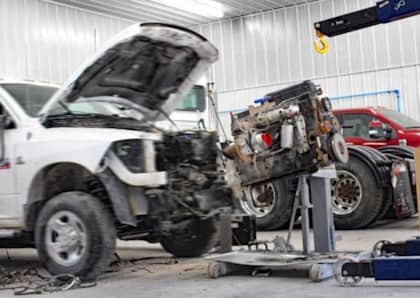The New Corvette Makes Fake Engine Noises, Should We Care?
It's one of the main reasons why car aficionados dream of driving a Corvette. They slip into the driver's seat, turn the key in the ignition and listen as the engine roars to start. Once the Corvette's on the road, it continues its raucous display as it speeds down highways and back roads with ease.
But, to some purists, that dream may be gone now that Chevrolet has decided on a polarizing new feature in its Corvettes. Now, when the engine noises boom through the car, they come in part from the vehicle's speaker system.

Is This Normal?
Although it may be news to some, fake engine noises have long been in use in car design. Automakers have done so for a multitude of reasons. For one thing, hearing the engine purr is a huge reason why people drive sports cars in the first place. So, enhancing that sound builds a stronger connection between driver and vehicle.
Sometimes, carmakers are limited as to how loud they can make an engine. For instance, European regulations prevented Mercedes from making its AMG model's engine as loud as drivers imagined it to be. Exhaust regulations on that continent would affect cars shipped over to the U.S. and beyond. The company said it was too expensive to design and produce different exhaust pipes for different markets. So, they decided to funnel engine sounds through the cab of the AMG to appease drivers who wanted to hear their car accelerating.

Fake engine sounds can also project from the outside of the vehicle as a safety precaution. More specifically, electric vehicles make little noise and can, therefore, be dangerous to pedestrians. The roaring of an engine warns people not to cross the street.

And this particular usage shows that fake engine noises are here to stay. Some estimates predict that, by 2040, 57 percent of all passenger cars will be electric. As such, more and more automakers will incorporate engine sounds into the design of their vehicles to mimic the noises we know—and love—our cars to make.
Does the Corvette Need a Fake Engine Noise?
It makes sense to hear that electric cars have to compensate for a quiet engine with manufactured noises. But the Corvette? These sportscars are known for their powerful engines—using fake sounds could signify the engine has lost some of its power in a redesign.
Don't be fooled, though—the Corvette is still just as much of a muscle car as it has always been. The 2020 Corvette Stingray, the brand's entry-level sports car, comes with a 6.2-liter V8 engine. This gives the Stingray a powerful 490hp and 460 lb-ft of torque, the most ever for an entry-level Corvette. With the optional performance exhaust pipe, both of the latter figures increase by five apiece. All of this amounts to a car that's far from quiet.

Where you might not hear the engine revving is in the cabin of the car. Depending on how insulated the interior is, you might not be as in tune with the sounds the engine's making. And that could very well be why Chevrolet has begun playing engine sounds through the speaker.
Does it Matter?
You might recoil at the thought of fake engine noises but, ultimately, it's not the end of the world. There are so many more important details to consider in your vehicle apart from its use or avoidance of faux revving and roaring sounds.

When it comes to the aforementioned Stingray, the car comes with a slew of enviable features that car lovers should focus on before the fabricated engine noises. The engine itself is worth noting, as it sits at mid-range rather than in the front of the car. As such, the driver's seat is situated almost exactly over the front axel. This positioning makes the car even easier to steer and more responsive in the process.

As you likely know already, these are the features that matter. Regardless of the car, you should seek out engine quality and performance rather than the presence or absence of sound effects. Then, do your part to maintain the engine so that it works—and sounds—great for years to come.
Should I Buy a Car that Makes Fake Engine Noises?
There's nothing like getting behind the wheel of a car and hearing the engine roar. But don't let a car company's use of faux sound effects deter you from buying a particular vehicle. The sounds are only part of it — you also get to roll the windows down and whip your car around curves and cruise down highways. And we think that's enough of a reason to buy the Corvette, fake sounds and all.
Read about the future of new electric trucks, here.







